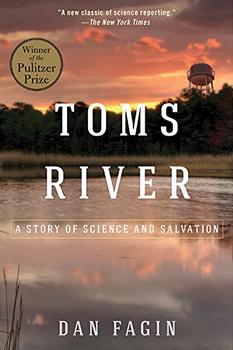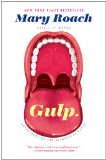Summary | Excerpt | Reviews | Beyond the book | Read-Alikes | Genres & Themes | Author Bio

How One Man and Half a Billion Honey Bees Help Feed America
by Hannah NordhausAs the granddaughter (and great-granddaughter, and so on) of farmers, I enjoyed the depiction of John Miller, the beekeeper who is prominently featured in Hannah Nordhaus's The Beekeeper's Lament. Calm, hardworking, independent, fascinated by the weather report; Miller is as rural as he is admirable. In a time when many Americans associate the term "agriculture" with massive conglomerates like Monsanto and Cargill, readers will be glad to read about an independent farmer who harvests something other than soybeans and is passionate about his product. This is not to say that the depiction of Miller is quaint and idealistic; beekeeping is a strenuous profession that seems to be on the brink of collapse and, though Nordhaus's story is a sad one, it features an everyday hero.
The recent development of Colony Collapse Disorder (CCD) - a phenomenon in which bees suddenly abandon their hives (see sidebar) - has brought a great amount of attention to the beekeeping industry. Nordhaus's book is written in response to public interest in this natural predicament, but she sidesteps arguing about the cause(s) of CCD. She explores many of the presumed culprits, such as pesticides, mites, and diseases, but ultimately concentrates on the value of beekeeping rather than on the destruction caused by CCD. This is where The Beekeeper's Lament strayed from my expectations. I began the book anticipating a definitive explanation for the honeybees' disappearance but discovered that a direct answer to this question does not yet exist. I soon realized that The Beekeeper's Lament serves a larger purpose: to show how important bees are to agriculture, even by today's industrial standards of food production.
Nordhaus skillfully shows this relationship by profiling John Miller and his apiaries, which stretch across the American West with locations in North Dakota, Idaho, and California. Based on Miller's experiences, readers see how beekeeping relates to honey production, crop cultivation, the creation of FDA policy, and the regulation of invasive species populations. The Beekeeper's Lament is as much about the American economy as it is about the plague of CCD, and the book's best quality is how effectively it proves that food production is dependent upon honeybees.
The Beekeeper's Lament does a wonderful job at depicting the symbiosis between agriculture and bees, and it avoids contributing to the (occasionally) vapid media coverage that surrounds honeybees and CCD. It provides a story that is pragmatic, objective, and informative and is for readers who want to better educate themselves about ecological change and current agricultural practices without slogging through pages of scientific reports.
Nordhaus exhibits considerable talent as both a writer and researcher, as her book is both edifying and engaging. Her readers are rewarded with a vivid, thorough portrait of honeybees and apiaries in the twenty-first century. However, given the plethora of interesting content, I was a little disappointed to not find a bibliography or reading list in the book (with the exception of a few mentions by Nordhaus in the acknowledgements). After learning about the quirky, understated, and essential role honeybees still play in agriculture, it is hard to not want to learn more about them. It is also going to be impossible for me to buy anything but 100% pure honey when picking up something a little sweet at the grocery store.
![]() This review
first ran in the July 13, 2011
issue of BookBrowse Recommends.
This review
first ran in the July 13, 2011
issue of BookBrowse Recommends.

If you liked The Beekeeper's Lament, try these:

by Dan Fagin
Published 2015
The riveting true story of sixty years in the life of a small town ravaged by industrial pollution, Toms River melds hard-hitting investigative reporting, a fascinating scientific detective story, and an unforgettable cast of characters into a sweeping narrative.

by Mary Roach
Published 2014
The irresistible, ever-curious, and always best-selling Mary Roach returns with a new adventure to the invisible realm we carry around inside.
Your guide toexceptional books
BookBrowse seeks out and recommends the best in contemporary fiction and nonfiction—books that not only engage and entertain but also deepen our understanding of ourselves and the world around us.